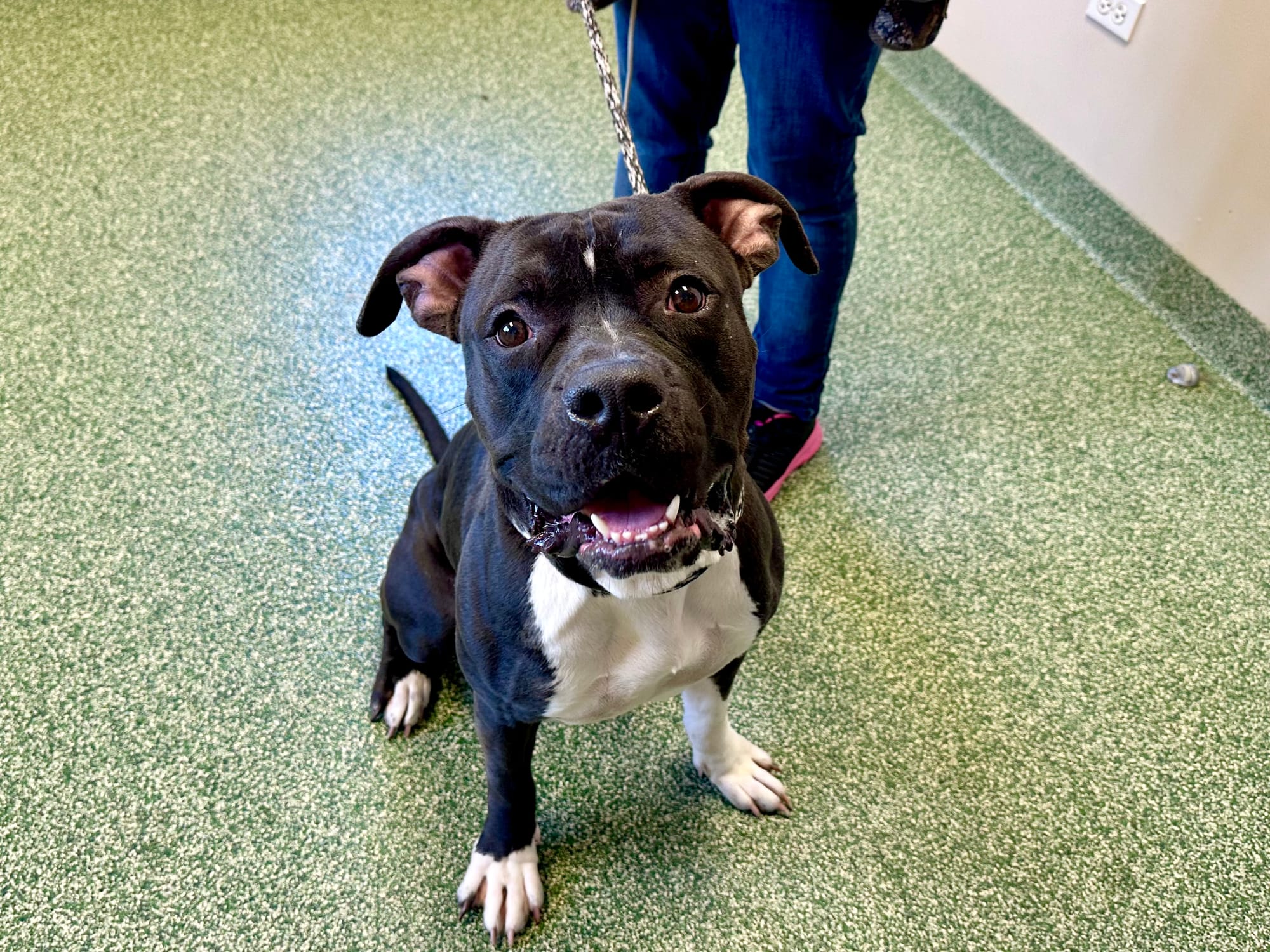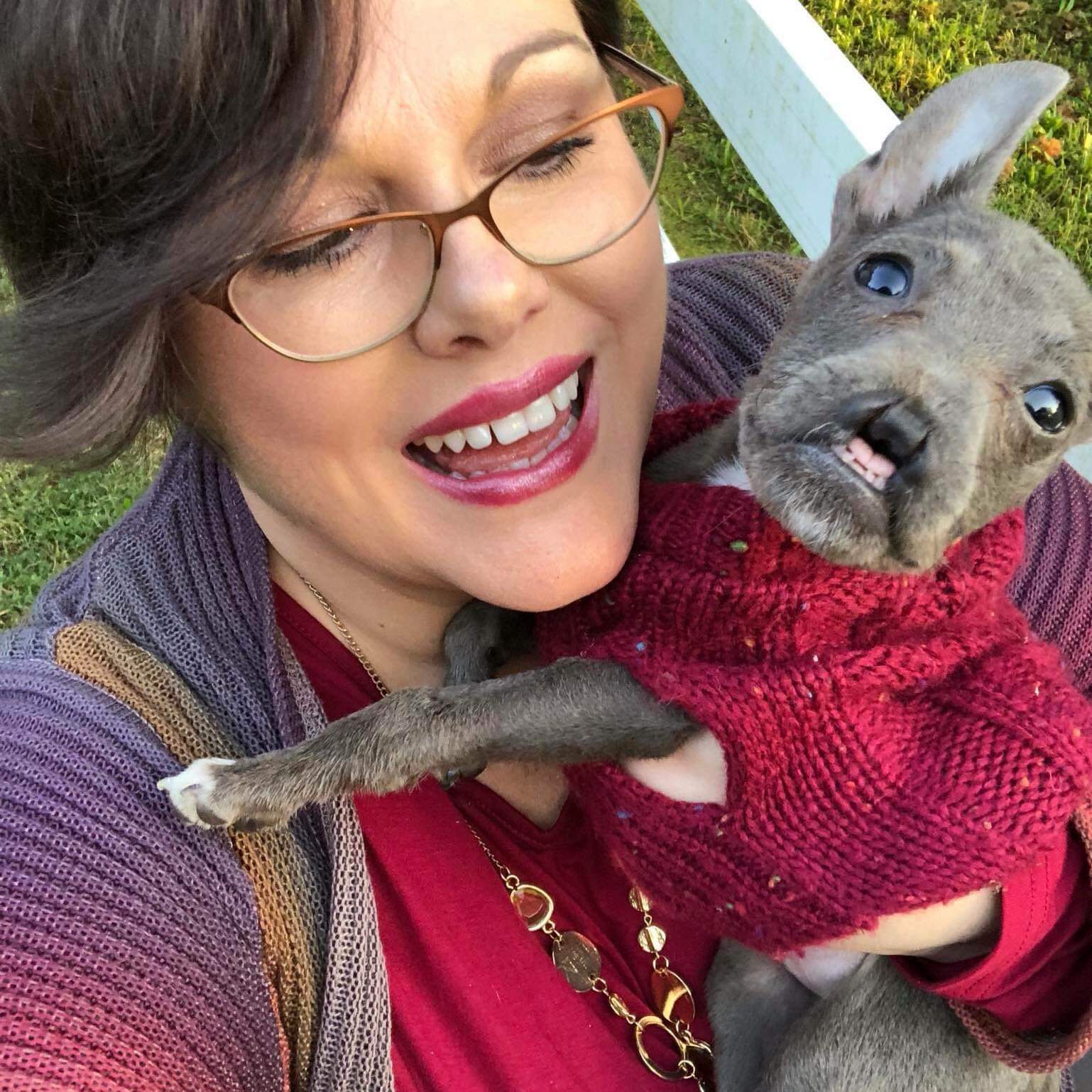Welcome to the ultimate destination for celebrating the unsung heroes of the dog rescue world. At Rescue Spotlight, we're dedicated to highlighting the remarkable journeys of rescue organizations and the incredible individuals behind them.
Whether you seek heartwarming tales of second chances, inspiring stories of rescue missions, or practical insights into the world of dog adoption, you'll find it all here.
Today, we're privileged to interview Emily Wolf, one of the devoted people behind Summit Dog Rescue. You can find a direct link to their Instagram here.
Here is their story:
What inspired you to start or become involved with this rescue organization?
Wolf: I have been rescuing dogs for over 20 years - the need is overwhelming. I founded SDR because I love animals and they have no voice. It is inexcusable that we kill millions of companion animals every year in this country, and I couldn't sit by and do nothing to help animals.
Can you tell us about a particularly memorable rescue mission or adoption story that stands out to you?
Wolf: Well last fall we got an email from a local overcrowded shelter that a beautiful chocolate lab was on the euthanasia list because she was surrendered for severe separation anxiety. Apparently she had self harmed trying to escape from her outdoor kennel and her people didn't want her in the house anymore because they had had a baby. Millie was loving with all animals and every human being she met... but she was unadoptable due to her SA. We took her into our rescue, helped her feel safe and secure with her people and discovered she has an incredibly low thyroid. A dangerously low thyroid can contribute to anxiety, so we treated her thyroid and worked on slowly leaving her alone for 1 second then 2 seconds. She was adopted by a wonderful couple with 2 other labs (yellow and black!) and she lives an incredibly full and joyful life now!!
What are some of the biggest challenges you face as a rescue organization, and how do you overcome them?
Wolf: Misinformation is probably the biggest challenge. That is why we started the podcast and also why I became a certified professional dog trainer (KPA-CTP, CPDT-KA and FDM). Extremely well-meaning people often make things harder for dogs by not having the right information, and relying on outdated mythology methods or crowdsourcing information from other misinformed members of the general public. We all love dogs - that is why we get them, love them, save them. But without fosters/rescuers/adopters having top-notch information, dogs often suffer. One way dogs suffer is by being what we call "flight risks" upon arriving in their new homes, and their fosters/adopters not being ready for this potential. Almost once a week in our small city, a rescue dog escapes and is lost. Some are never found again. By instituting some simple management strategies, dogs could be much safer during this transition period into their new homes. A Fi collar can be part of this, and we use a GPS collar for each dog we rescue, especially during the decompression/transition period.
How do you select the dogs that your organization takes in, and what criteria do you use for adoption?
Wolf: We work with shelters in Colorado, Texas and Arkansas and take in dogs that we can find a foster for. It's that simple. If someone is totally committed to fostering, we can take the dog. Without a committed foster, there is nothing we can do. Our criteria for adoption is a thorough screening and we have almost a 99% success rate in our adoptions. We include training and behavior support with our dogs (and cats) and ask people to continue this for the life of their animals. Our goal is not to rehome animals over and over... an adoption of a new animal should be a serious consideration and people should be dedicated.
In what ways do you work to rehabilitate and socialize dogs before they are adopted?
Wolf: We do everything possible to teach our dogs skills that will help them be successful in our human world. We use marker/reward-based training and careful exposure to their environment. These dogs are often surrendered due to no one ever working with them. Teaching a rescue dog how to be successful can take time and patience. We will bring in veterinary behaviorists and/or whoever else is needed to help our dogs be successful. Happy to chat in more detail about this - it is the core of our program.
What role do volunteers play in your organization, and how can people get involved?
Wolf: We are all volunteer and always need fosters and volunteers to just do the behind the scenes work. We also could use help promoting the podcast (which has over 80,000 downloads and has had incredible reviews and feedback!).
Can you share some success stories of dogs who were once in your care and have now found loving forever homes?
Wolf: We have hundreds of success stories. Benny was a fearful dog who escaped from the yard he lived in in Arkansas on the 4th of July, due to fireworks. He got picked up by the local shelter and his people didn't want him back. He came to foster with me and he was terrified of the world. Through careful exposure and training, we got Benny to the point that he could be adopted by a lovely couple in the mountains. It took Benny weeks to feel comfortable with the husband, but we coached him and eventually Benny knew he was safe and bonded thoroughly to both guardians. He is doing absolutely great. We supported them with confidence-building exercises and how to keep working with Benny, and he is much more confident, secure, and brave now. It's been 2 years!
How does your organization collaborate with other rescues, shelters, or animal welfare organizations?
Wolf: We have our podcast, which is designed to help provide cutting edge behavior support to other rescues, shelters, and animal welfare orgs. We also work directly with other rescues, providing behavioral support and information to them (if requested). Behavioral help should not be a privilege, accurate information should be accessible to all rescues/shelters who desire it.
What initiatives or programs does your rescue have in place to promote responsible pet ownership and prevent pet homelessness?
Wolf: Our podcast - Pod To The Rescue (www.podtotherescue.com)
Looking ahead, what are your organization's goals and aspirations for the future?
Wolf: To keep the podcast going, work on spay/neuter more and create a small behavior center for rescues/shelters to come and learn from us.

